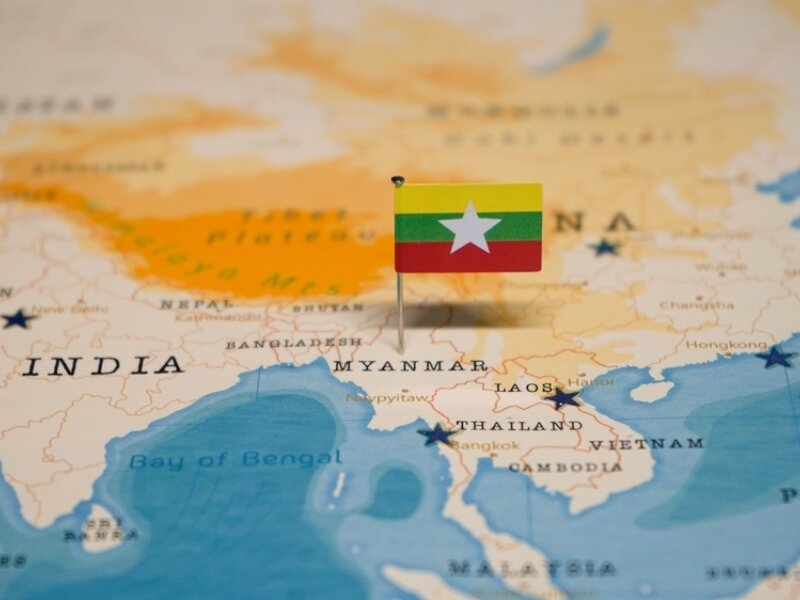Libya and the Russian Strategy for Africa
Libya’s instability, its porous borders, and the country’s central position could grant Moscow a strategic asset for its penetration into the African continent and a new outpost on the Mediterranean.

Sharaf Maksumov / Shutterstock.com
Over the past few weeks, it has become evident that the Russian Federation is experiencing a steady growth of influence in Libya. Moscow, by pivoting on the country’s internal rift between the East and West, has over the years carried out a meticulous work of political, economic, and military infiltration, especially in the areas that are under the control of General Khalifa Haftar. Moreover, the official reopening ceremony of the Russian embassy took place in Tripoli on February 22. On that occasion, the ambassador Aydar Aghanin announced the future opening - within the year - of a consulate general in Benghazi.
Libya’s constant state of instability has fostered the proliferation of violence and criminal activities, becoming a nurturing environment for Moscow’s increasing activities in the country. Despite the mediation efforts carried out by the UN, Italy and the EU in particular, all the different national stakeholders have imposed mutually exclusive conditions. Because of this, there are still two co-existing governments (the Government of National Unity based in Tripoli and the Government of National Stability based in Sirte); two parliaments (High Council of State and House of Representatives); a tripartite authority in the West which carries out the presidential functions (the Presidential Council); and an entity that is active in the Central-Southern regions that exercises, de facto, authority (the self-proclaimed Libyan National Army (LNA) of Khalifa Haftar).
Russia has found its way into this political-institutional rift and, as mentioned, has over time rooted its penetration into the country by leveraging its support for Haftar. From August to now, for example, there have been several meetings in Benghazi between the LNA general and the Russian Deputy Defense Minister, Yunus-Bek Yevkurov. Meanwhile, in September, Haftar was received in Moscow by president Vladimir Putin and by the Defense Minister Sergei Shoigu. The topics at the center of the multiple meetings have been the intention to increase the use of certain logistical and military assets under the control of the LNA; to strengthen the control over part of the energy infrastructures connected with Europe (such as El-Sharara – Libya’s main oil site -, es-Sider, Ras Lanuf and Zuetina); and to control and influence the illegal migratory routes directed towards the Old Continent.
Furthermore, the Kremlin’s interest on Libyan territory has been also focused on establishing a naval military base in Cyrenaica, in the ports of Tobruk or Benghazi. The geographical position of Libya - central to both the Mediterranean, to the North, and the rest of the continent, to the South - and the porosity of its borders, would ensure Russia’s possibility of improving its influence, including its military projection, in North Africa, the Sahel and the Red Sea. Moreover, it would also grant Russia the ability to influence and interfere in the region, in order to exploit any element of instability and insecurity.
The planned settlement in Cyrenaica, if realized, could constitute yet another Russian naval outpost in the Mediterranean, following the existing one in Tartus, in Syria, and the desired-one in Port Sudan, in the Red Sea. Notably, unlike the other two, the Libyan port would be located less than 700 km away from the coast of Sicily.
In this regard, it is also important to point out how Moscow, by taking advantage of the local presence of the Wagner Group troops (now called Africa Corps), has managed to strengthen its logistical capabilities and extend its connections with other countries in the area. This is the case with the neighboring Sudan, Niger, and Chad, as well as Mali, Burkina Faso, and the Central African Republic. All countries where Russian mercenary militias have conquered important positions.
The “collaboration” with Haftar has allowed the group to establish strategic positions in the Libyan territory, with a deployment of between 800 and 1,000 units in the country. The Africa Corps’ main operational HQ in the country is based in central Libya, at the Al-Jufra air base - which is located in a crucial position for the control of trade routes and oil terminals - in addition to the sites of Brak al-Shati and Sirte.
In fact, in November, the transfer of some units to reinforce the troops deployed in South-Western Libya was allegedly arranged from Al-Jufra. Recently, also large quantities of weapons and heavy military equipment were reportedly delivered to the Eastern area. Given the proximity to the Sahel countries, it could be that these supplies are being sent to support the pro-Russian juntas that are present in the region. Or they could be deployed in Libya for a possible military escalation against Tripoli and to strengthen the kleptocratic spiral already in place with respect to oil, gas, gold, and drug trafficking revenues.
Because of the reasons mentioned above, the increased Russian presence in Libya complicates the already unstable picture of the country and the area. A situation in line with what is happening in the entire Mediterranean region, which is witnessing both an increasing arc of instability from Ukraine to the Horn of Africa, via Gaza and the Red Sea, and a parallel establishment and expansion of the Russian presence in some strategic countries. A scenario that leaves no doubt regarding the increasing presence of new emerging security risks in Europe’s Southern borders and NATO countries.



